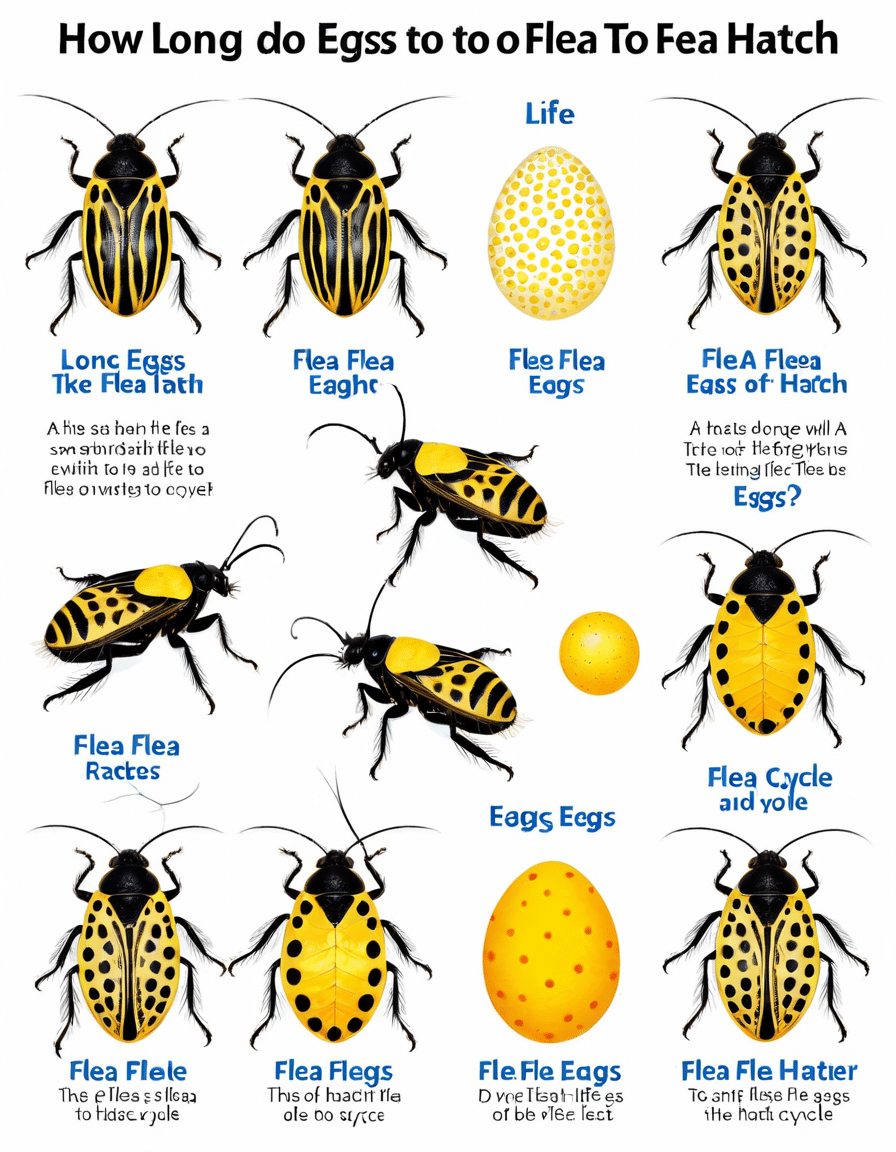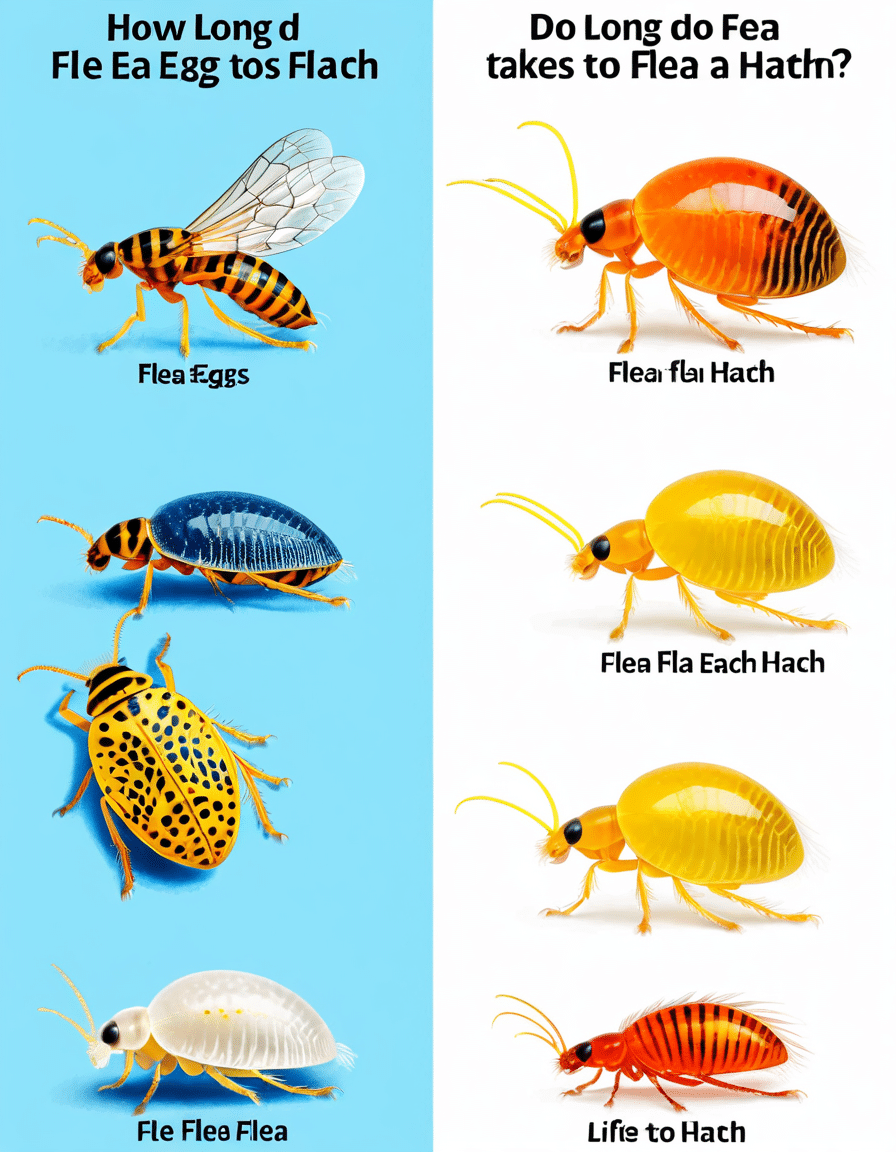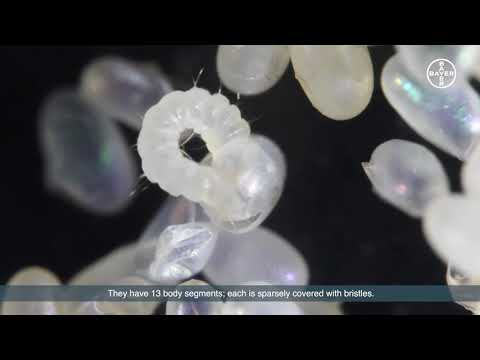Flea infestations can be a real headache for pet owners. Understanding the lifecycle of these pesky critters is crucial for controlling their populations. So, how long do flea eggs take to hatch? Most flea eggs hatch in about 1 to 12 days, but this timing can change based on environmental factors like temperature and humidity. The sooner the eggs hatch, the quicker the flea cycle can start again. That makes it essential to stay on top of effective strategies to keep your home flea-free.
The Flea Lifecycle: Understanding Timing
Egg Stage
Fleas can lay a shocking 50 eggs per day. These eggs often end up in spots where your pets spend a lot of time, like their favorite resting places. Under the right conditions—warm and humid environments—flea eggs can hatch in as little as a week. But if the weather’s cooler or dryer, it might take nearly two weeks. Knowing this is key to managing a flea infestation before it starts spiraling out of control.
Larval Development
Once the eggs hatch, the larvae come out, looking for a meal. These little guys feast on organic debris, including flea feces, which gives them a nutritious boost. They thrive in dark, moist places, meaning your pet’s bedding and carpets could be prime real estate for them. They can stick around for several weeks, making timely intervention essential.
Pupal Stage
After about one to two weeks, the larvae spin cocoons and enter the pupal stage. Here’s where things get tricky. Depending on environmental conditions, pupae can lie dormant for months up to a year, just waiting for the right moment to jump back into action. This dormancy means that even if you think you’ve gotten rid of the fleas, they may still be biding their time, complicating your eradication efforts.

Adult Fleas: The Final Hurdle
Adult fleas can emerge once the conditions are favorable, usually triggered by vibrations or warmth signaling that a host is nearby. Once they start feeding, they can live for several weeks to several months. In ideal scenarios, adult fleas can survive up to 100 days. The flea lifecycle can stretch from a few weeks to several months, emphasizing the importance of understanding how long fleas live when devising a treatment plan.
How Long Can Fleas Live?
Fleas are more resilient than you’d think. Adult fleas can survive a long time, contributing to their notorious reputation as stubborn pests. Combined, the various lifecycle stages can last from weeks up to several months, depending on environmental factors. The longer they thrive, the greater the potential for a full-scale infestation in your home, highlighting the need for effective preventive measures.

Beating the Flea Lifecycle: Effective Strategies
So, how can you combat the flea lifecycle efficiently? Here are some tried and true methods:
Comparisons: Lifespans of Other Common Pets and Parasites
Understanding the lifespans of different organisms helps in managing them effectively. Here are some comparisons:
Managing Your Environment: Long-Term Solutions
To effectively tackle flea infestations, you need to realize how interlinked pet care and pest management are. Regular vet visits and preventive treatments are as crucial as maintaining a clean home.
Flea prevention is a comprehensive task that involves persistence, education, and proactive strategies to disrupt their lifecycle. By learning about how long flea eggs take to hatch as well as the lifespans of other creatures, you can create a healthier living space for both your pets and your family.
Remember that ongoing maintenance and prevention are your best tools. By enhancing your understanding of various lifespans and the attitudes needed for effective pet care, you take the first steps toward a long-term solution against fleas.
Whether it’s keeping those house guinea Pigs in check or making sure your pets are cozy in their hamster clothes, the bottom line is that education is key to a happy, flea-free home.
How Long Do Flea Eggs Take To Hatch
Understanding how long do flea eggs take to hatch can be a bit of a mystery, but here’s a fun breakdown for you! On average, flea eggs typically hatch in about two days to two weeks under ideal conditions. When your environment is warm, moist, and inviting—think cozy corners that a Newfoundland cross Labrador might claim as their own—these eggs can crank out little larvae in no time. It’s important to know this because once those larvae make a debut, they can quickly turn into adult fleas, which can start the cycle all over again!
Flea Life Cycle Curiosities
Speaking of cycles, did you know that flea eggs account for around 50% of the total flea population in your home? That’s right! Unlike the splashy antics of Beethoven that keep us glued to our screens, the life of a flea is busy and often hidden from view. Freshly laid eggs can easily fall off your pet and scatter into carpets, bedding, or even your shoes! Yikes! The conditions play a huge role—more moisture? Faster hatching, just like how Holly Campbells stunning performances add depth and richness to her roles. The right environment can make a world of difference!
Beyond Hatching: The Impacts of Flea Infestations
Once you’ve got fleas in the house, it’s not just a matter of how long do flea eggs take to hatch, but also what comes after—namely, adult fleas can begin laying eggs about 24 hours after they feast on your furry friend. Talk about a rapid multiplication! Given the right environment, these pests can quickly turn your home into a battleground, kind of like the epic journeys depicted in the Lord Of The Rings Movies. However, much like the resilience of nature, there are ways to combat infestations, from vacuuming diligently to contacting a veterinarian about flea treatments like those for canine oral Ulcers that can help get rid of these pesky visitors. So keep an eye out for those flea eggs and take action before they hatch!






